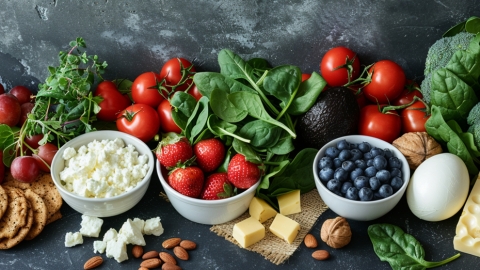What should patients with anal fistula eat
Patients with anal fistula should consume foods rich in dietary fiber, high-quality protein, heat-clearing and dampness-resolving ingredients, vitamin-rich foods, and easily digestible staple foods. The diet should be light and nutritious to help reduce inflammation and promote wound healing. If symptoms worsen after dietary adjustments or if there is rectal bleeding or severe pain, prompt medical attention is recommended.
1. Foods rich in dietary fiber: such as celery, spinach, oats, and sweet potatoes. These promote intestinal motility, maintain smooth bowel movements, reduce irritation of feces on the anal fistula wound, and lower the risk of infection and worsening. Consume in moderation to avoid excessive intake that may cause bloating.
2. High-quality protein foods: including lean meat, eggs, milk, and soy products. Protein is an essential component for wound healing, helps strengthen the body, promotes tissue repair, and supports recovery of the wound during postoperative or active phases of anal fistula. Cooking methods should primarily include steaming or boiling.

3. Heat-clearing and dampness-resolving ingredients: such as mung beans, winter melon, coix seed (yi mi), and red adzuki beans. According to Traditional Chinese Medicine, anal fistula is often associated with internal damp-heat. These ingredients can help clear heat and remove dampness, alleviating symptoms such as perianal redness, swelling, and pus discharge. They are suitable for daily consumption in porridge or soups.
4. Vitamin-rich foods: such as fresh vegetables and fruits, oranges, kiwifruits, and tomatoes. Vitamin C promotes collagen synthesis and accelerates wound healing, while vitamin A helps maintain mucosal health and reduces the risk of infection.
5. Easily digestible staple foods: such as millet porridge, rice porridge, and soft noodles. These avoid irritation from coarse grains, reduce strain on the anorectal area, and ensure adequate energy supply to support normal metabolism and recovery.
Dietary habits should avoid spicy, stimulating, greasy, and fried foods; smoking and alcohol consumption should be avoided. Maintain sufficient daily water intake, preferably plain boiled water. Eat regularly, in small frequent meals, avoiding overeating, and maintain a balanced diet to support recovery.





